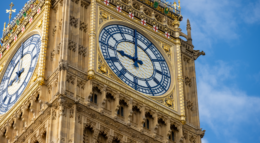
We need to talk about disability inclusion
Cannes Lions Festival's focus on diversity is commendable, but we need more discussion on disability inclusion, warns Caroline Casey.
As the advertising industry gathered at Cannes Lions Festival this week, it was hard not to notice the number of panels dedicated to embracing inclusion, equality and diversity.
This year saw Cannes firmly place inclusion on the agenda, with a particular focus on examining gender issues. And for good reason. Historically, it's no secret that for in its seven-decade history only 82 films directed by women have competed in the main slate, compared with 1,645 directed by men.
Cannes does recognise this is a problem though. Releasing its gender inclusion stats for the first time ever this year, it revealed 32% of short film submissions were made by women. Whilst this is undeniably still not good enough, it's promising to see this level of examination from Cannes.
These discussions come as the UK's Advertising Standards Authority (ASA) this month begins to implement its ban on ads which re-enforce gender stereotypes. One may argue it couldn't come quickly enough, as a new survey by Adobe unveiled at the festival revealed the UK is lagging behind the US for diversity and representation in advertising.
With sessions at Cannes this year entitled: "To what extent are agencies inherently racist, homophobic, sexist and ageist?", the festival was not shy to confront the topics that matter.
But we'd add another 'ist' to that list: 'ableist'. That is – a lack of disability inclusion.
Here at The Valuable 500, we were thrilled that our campaign '#diversish',which calls out hypocritical attitudes in business towards diversity and disability inclusion, won a bronze Cannes Lions in the film category.
And I was interested to hear Craig Spence – Chief Communications Officer for the International Paralympic Committee's (IPC) speak about the Paralympics as the number one sporting event for diversity and social inclusion, as part of the Cannes line-up this year.
However, most of the high-profile conversations at the event were about tackling ideas of diversity and inclusion in regard to gender. Whilst we urgently need to move the needle on gender equality within the advertising industry – both in terms of better representation in the content produced, and in terms of senior representation within agencies – the same passionate voice is missing for those with disabilities. If disability is not on the agenda, neither is diversity.
In an industry that takes gross revenues of $13.3bn, advertising agencies are making great steps in recognising and changing the inherently sexist problems that lie within the sector. Now it's time to do the same for disability.
15 percent of the global population have a form of disability, some 80% of those acquiring their disability between the ages of 18 and 64 – the working age. With a global disposable income of $8 trillion, this is a pool of people that the advertising industry simply cannot continue to not prioritise.
The missing voice of disabled people in advertising can be attributed to the lack of diversity in the industry roles themselves. By employing disabled people, not only do you create a truly inclusive workforce, but a natural shift towards representation of those disabilities comes with it.
This lapse in inclusion is unfortunately the same of other sectors, as our recent research with EY found that despite 90% of companies claiming to prioritise diversity, only 4% actually consider disability. This 'diversish' attitude that globally businesses share can no longer be an accepted option.
Last month the government published an updated report of 'the disability employment statistics' and whilst the results give cause for optimism, it revealed what we all know; the disability employment gap is far from closed.
Of the 7.6 million people of working age in the UK with a disability, only 3.9 million of them are in employment. That's just over 50%. Although that percentage is not the most welcoming, the 150,000 increase from the previous year is warmly received.
Whilst it's important to applaud the commendable shift that society and the industry is taking, the change can be greater. This brilliant, proactive attitude is not fully translated when it comes to the inclusion of disabled people within the industry.
That's why we need to shout about it; let's drive the final frontier in diversifying advertising by giving those 1.3 billion people the voice they deserve.












